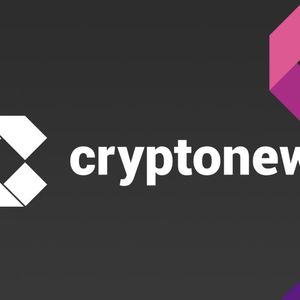Five Factors to Consider When Choosing a Crypto Market Maker
4 min read
So you’ve got your project listed on a prominent exchange and drummed up some serious heat on social media – now all you have to do is find someone willing to lend their time, expertise, and most importantly, capital, to allow your coin to be traded with smooth, stable liquidity. This is where market makers come in. Market makers are companies which provide liquidity to financial markets (say, Bitcoin -USD) by using their own funds to buy and sell your coin at the predetermined market price. These entities are needed in financial markets because there might not be enough people in the world holding a specific financial asset to allow it to be traded instantly. Without market makers, traders could have to wait days, weeks, or even months to find someone willing to buy or sell an asset at the price you desire. In short, market makers ensure there’s always a liquidity pool available to enable efficient order execution, and stabilize token values by minimizing bid-ask spreads, and lowering volatility in general. Let’s take a quick look at ten important factors to consider when choosing a market maker. Reputation and Experience One of the first things to consider is the reputation and experience of the market maker in question. Have they handled assets in financial markets similar to yours before–- be they cryptocurrencies, DeFi tokens, or futures contracts? How did those markets perform under their guidance? There have been plenty of cases of market makers dumping their clients’ tokens or manipulating prices in an effort to profit off of unknowing retail investors. On the other hand, there are also a strong selection of industry stalwarts that have provided liquidity for diverse financial markets for decades. Companies like Caladan and Wintermute have years of experience managing liquidity for a variety of cryptocurrency tokens, throughout a constantly evolving regulatory landscape. Don’t just go by hype. Look at your market maker’s past record and judge them by their actions, not their words. Incentives and Payment Structure Market makers need to get paid. For some, this means profiting off the miniscule spread between token prices. It might only amount to a fraction of a cent, but when this is done for thousands of trades per day, it adds up pretty quickly. Other market makers simply take a monthly retainer. Some have been known to use a model known as “loan and option”. This is where the maker takes some of your tokens on loan and tries to profit from trading them. Naturally, this can cause conflict, since if the maker isn’t very confident in your project, they may end up selling your assets too soon, thus driving the price down. Make sure your market maker’s goals align with yours. It’s your responsibility to lay out clear rules, incentives and penalties to make sure they are working hard for your token or asset. Technology and Infrastructure Market making isn’t just a case of throwing money at an asset and hoping for the best. The most efficient market making firms utilize the latest, most advanced trading algorithms which can execute trades in mere milliseconds. What’s more, the best algorithms can react instantly to changing market conditions, moving quickly to balance the orderbook and keep prices stable. You should always investigate the level of technology used by a market maker, just as you’d inspect the engine of a new car. Find out if their tech can be applied to only centralized exchanges (like Binance or Coinbase), or also decentralized exchanges (like Uniswap). Is it compatible with your specific blockchain or token? Can it adjust rapidly if the market makes a sudden movement? Multi-Chain and Multi-Exchange Support Most modern cryptocurrency tokens don’t exist on a single network. The majority of newly-launched projects aim for multi-chain functionality, with tokens that are able to be transferred from Ethereum , to Polygon, to Binance Smart Chain, for example. This means that market makers must manage liquidity across all of these different networks, otherwise your asset could end up being priced differently on different platforms, causing market confusion and arbitrage risks. Modern market making firms like Caladan and Wintermute focus on providing liquidity across as many chains as possible. Caladan, for instance, integrates with over 70 centralized and decentralized exchanges, and its low-latency infrastructure, advanced algorithms, and extensive connectivity across CEXs and DEXs gives new token launches a way around the “cold start” problem. In other words, new tokens which are compatible across multiple networks can access deep liquidity from day one. Risk Management Risk is a given in financial markets, but good market makers will have plans in place to manage any risk that arises in various situations. When selecting a market maker, query their risk management strategies. Find out about their rules regarding stop-loss limits during market crashes, and which wallets are used in conjunction with the tokens they manage. What steps do the makers take to discourage or stop people from dumping large amounts of tokens into the market all at once? You’ll also want to know about how they store client assets. Do they use reputable custodians? Are they insured? Do they align with legal compliance rules, like KYC (know your customer) and AML (anti-money laundering) checks in the various jurisdictions they operate in? Final Thought Picking the right market maker is one of the most important decisions you’ll make after launching a token. It will affect how your token trades, how investors see your project, and whether you can attract serious partners down the line. Fortunately, there are several high-end market makers out there to choose from. So keep these five points in mind, and start making your market. Disclaimer: This article is provided for informational purposes only. It is not offered or intended to be used as legal, tax, investment, financial, or other advice.

Source: Crypto Daily



